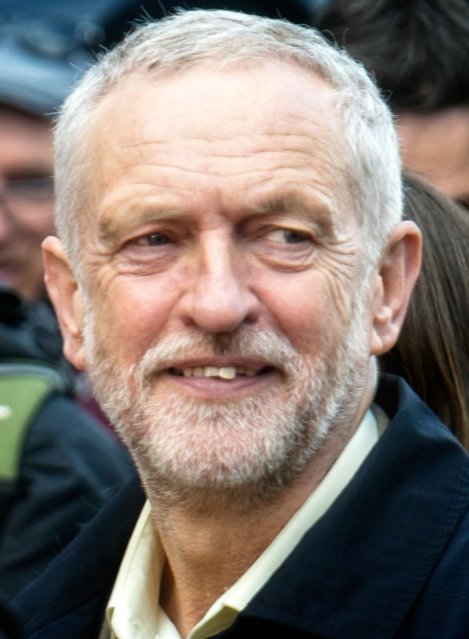No Limits on the Left

Here’s something you won’t hear everyday: I’m to the left of Jeremy Corbyn. If you listened to much of the British media, you wouldn’t think that’s possible, given that the now twice-elected leader of the Labour Party is apparently a Lenin-loving, Hamas-hugging, business-bashing commie fiend dead-set on nationalising your children and making them go on strike in reopened coal mines. And yet, here I am, proudly nailing my colours to the mast, revealing them to being considerably redder than those of certain bearded Bolshevik.
In all seriousness, anyone who is actually paying attention to what Corbyn has been saying and is being intellectually honest will have to admit that his politics aren’t that radical. He’s promised significant public investment, a move away from fossil fuels, faster Internet connections, stronger collective bargaining, and a number of other extremely welcome measures which nonetheless would keep Britain a firmly capitalism society. The only industry which he’s promised to nationalise is rail, which is so obviously sensible that even a majority of Tory voters support it, and possibly portions of the bus network. This barely scratches the surface of the nationalisations overseen by Clem Attlee’s postwar Labour government, let alone the sorts of proposals put forward by Tony Benn (de facto leader of the Labour Left) in the 1970s and ‘80s. This is not to say that I don’t think that, at heart, Corbyn is considerably more radical than his policies suggest, but his actual platform is some way to the right of what I’d like.
But I’m not writing this simply to moan about Corbyn being too moderate or betraying his roots or anything like that. I get that he is in a difficult position where he has to put forward policy which can win elections, hold the Labour Party together, and successfully be implemented without insurmountable resistance from the civil service or military. At some point compromises are going to be made and some of those are not going to be ones which I’ll find acceptable. A case in point is the recent move of some of those around the leadership to get behind the renewal of the Trident nuclear weapons1. I get that this may be seen as a necessary compromise if they are to pursue their agenda of democratising the economy. At the same time, though, I can not in any way support any policy which would see tens, if not hundreds, of billions of pounds spent on weapons of mass destruction. It would be bad enough keeping the weapons if they were already built and just sitting there, but it is utterly unconscionable to actually be spending the money to build them yourself. Yes, the renewal will likely be underway by the time Labour could hypothetically be elected, but it will not be finished, will still be costing money, and could still be stopped.
One of the problems we now face is that the Labour Party now has no left wing. Most people would look at me very strangely indeed for saying that, given that one of its most left wing MPs is now the leader. What I mean is that there is now no one to the left of the leader who can hold him to account and act as the party’s conscience. Having an uncompromising left block in parliament is important because it is able to act as a counterweight on the leadership when it is under pressure from business, the civil service, or the international community to abandon its goals. This is similar to the problem experienced in places like Bolivia and Greece where the most capable left-wing organisers ended up being drawn into the state, with little capacity for independent organising left.
Ideally this could be a role played by the membership, or at least a subset of it. However, most of the new members are left-progressive types rather than hard-core socialists (let-alone the Trotskyists that the media would have us believe no run the party). These are people who would have voted Green or Plaid Cymru or SNP or even Lib-Dem in previous elections and are not familiar with the detailed socialist analysis2. I don’t mean to be condescending to these people, as socialists must be able to reach out to them and convince them, but my point is that quite a bit of work is required before much of the membership is likely to be able to act as a significant counterweight to right-wing pressure on the leadership. The fact that much of the politics of these new members seems to be based around supporting Corbyn will also make it more difficult for them to apply pressure on him when necessary.
Many of the left-wing currents within labour are not helping with this. While they could be staking out a space to develop the left policy they want, without having to worry so much about not antagonising the Labour Right, instead their approach seems to be to provide uncritical support to the leadership and its policies. The Jeremy Corbyn for PM Facebook page seems to consist mainly of praising whatever the leadership says, while Momentum has been little more than a Jeremy Corbyn fan club. Both display a slightly revolting level of sycophancy and hero-worship.
This must not continue. We on the left must not be afraid to publicly disagree with the leadership if they are doing something which we consider to be wrong. Motions should be put forward to conference calling for more radical actions than Corbyn has been willing to discuss so far. I’m not saying that we should just propose whatever we want, regardless of its practicality or ability to get traction with the electorate. There’s no point trying to get a demand for collective ownership of the means of production and distribution into the next Labour manifesto3 or to propose budgets using misleading figures. We still need to consider what is achievable, but if our opinion on this differs from that of the leadership (as mine does in many cases) then we should not be afraid to say so.
Jeremy Corbyn’s positions should not represent the limit of left wing policy.
-
The reference to NATO a collectivist, internationalist organisation during this speech also really took the cake. ↩
-
By which I mean a materialist approach to history and society, with all that this entails. ↩
-
But stating this as a long term goal in the party constitution, on the other hand… ↩
comments powered by Disqus
